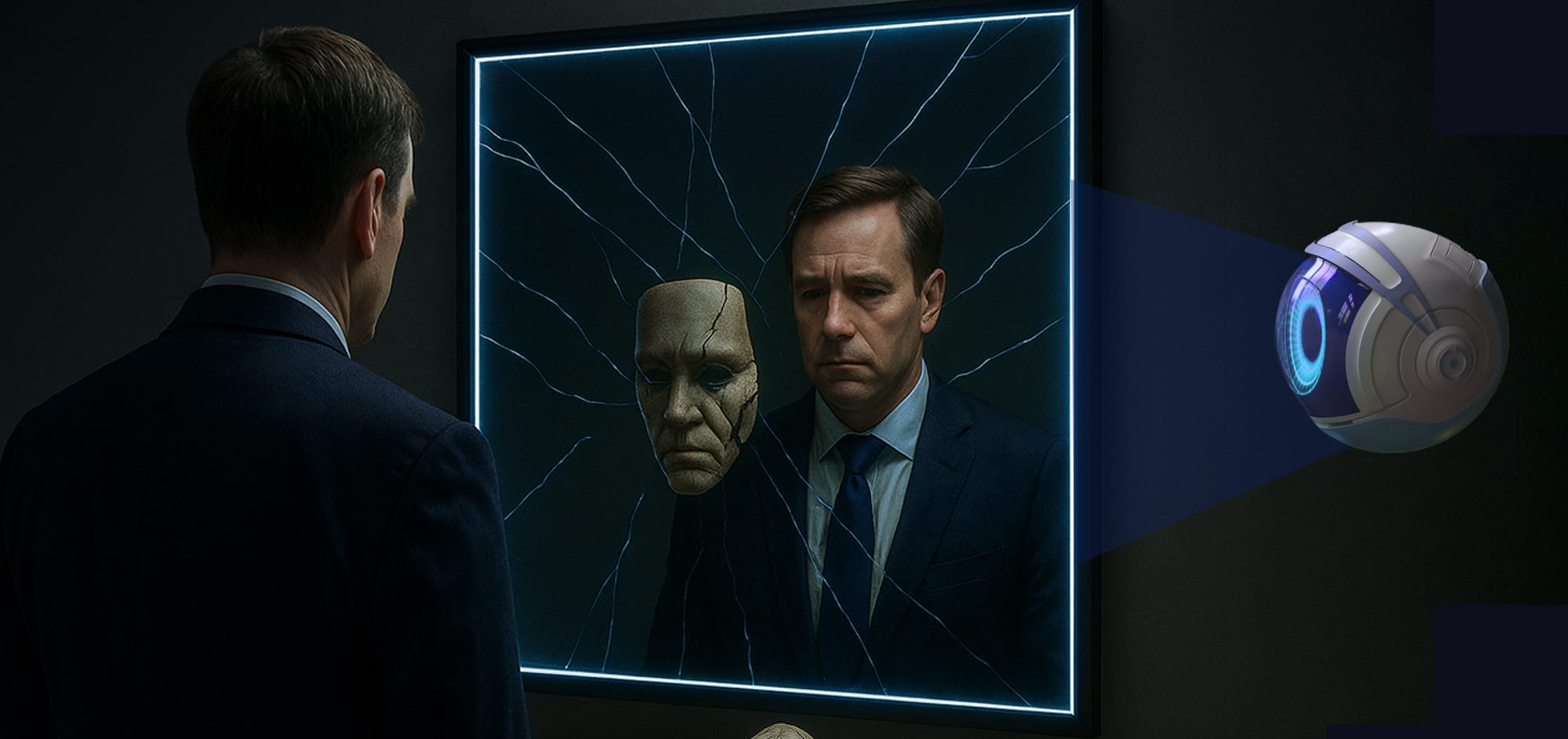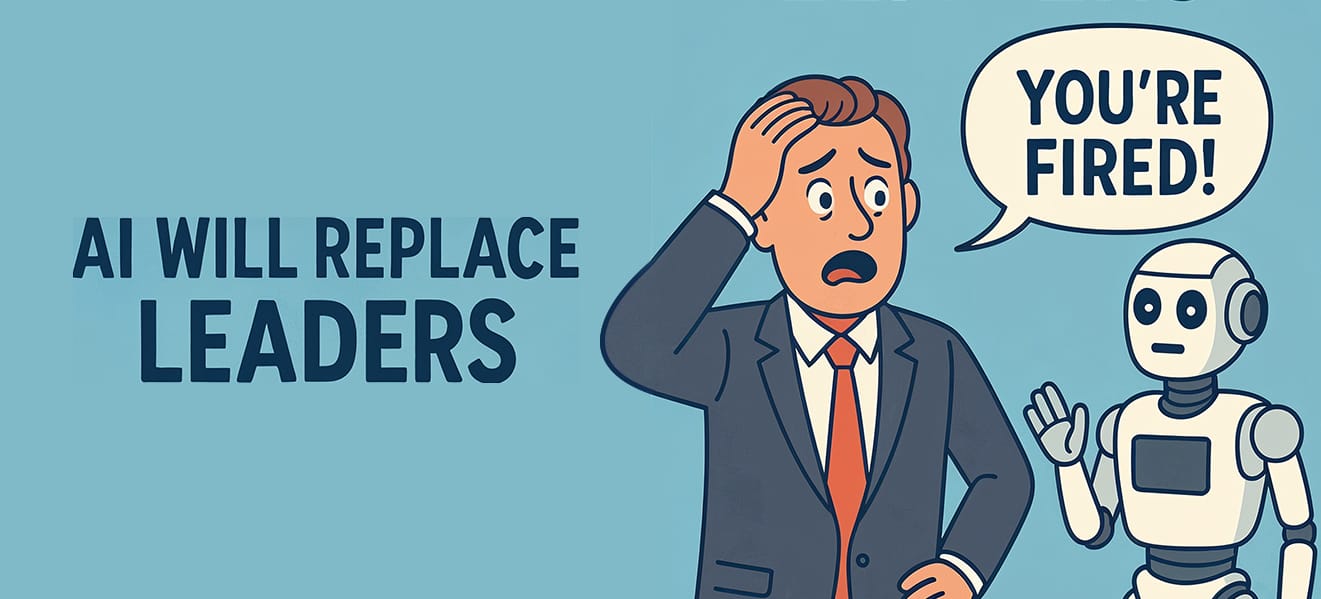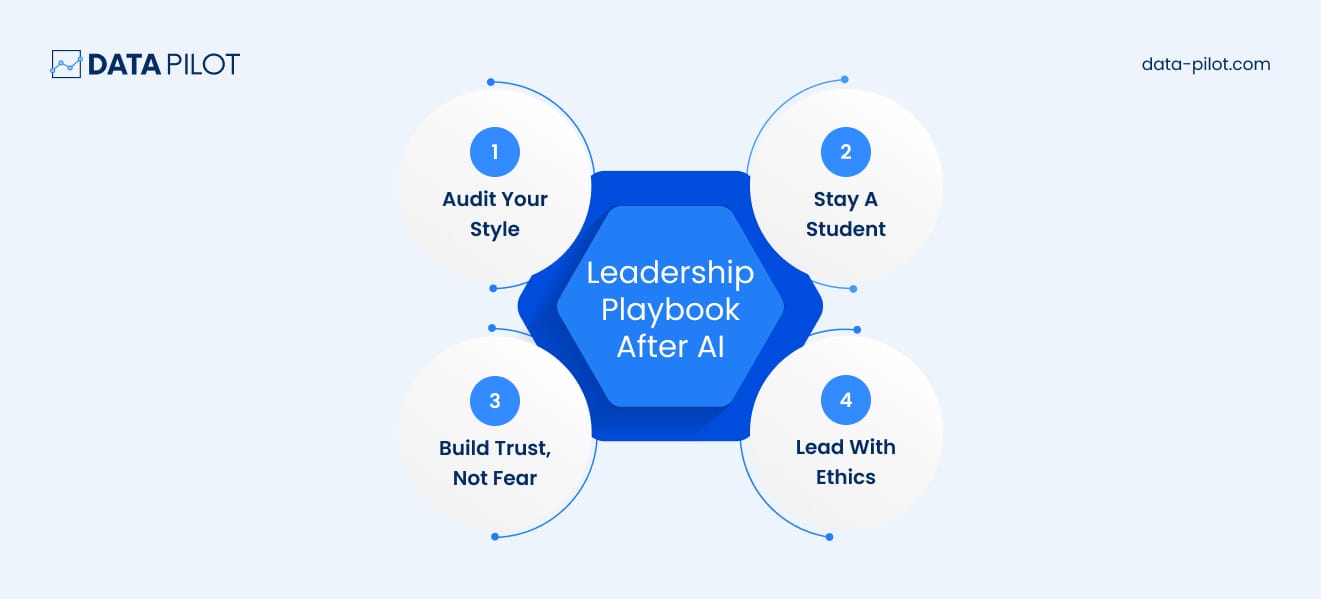If you’re a leader like me, you probably feel like your brain has either gone a bit fuzzy since AI has stepped into your work life, or you are having to exert extra hard to put in that flair of originality. I’ve gone from one cappuccino in the morning to two to get that boost. But, some may still be struggling. And that can be a key cause for anxiety in today’s world.
Every few days, a headline screams: “AI is coming for your job!”
The stats don’t make it easier. The World Economic Forum states that AI and automation could replace around 92 million jobs globally by 2030 [the upside is that AI is creating more jobs than it’s taking away, but that’s a topic for next time]. But the question is, should you be worried about being replaced? I’m not surprised that 51% of executives are worried about AI taking their roles
If your day is 90% copy-pasting spreadsheets or approving vacation requests, you should probably be nervous. Because those are the tasks AI can automate within seconds.
But if you are adding value, here is my straight up take: AI isn’t here to replace leaders. It’s here to smoke out the ones who were faking it all along.
That’s right—AI is less “robot overlord” and more “truth serum.” It will show us who’s really leading and who’s just hiding behind job titles, endless meetings, and Google Sheets. Let’s dive in.
Leadership Was Never About Being a Robot Anyway
Think about it. Leadership is not data crunching, it’s not staring at dashboards, and it’s not sending passive-aggressive “per my last email” notes. Leadership is vision, courage, and being human (something that I may have learnt a little further in my leadership journey).
AI can’t inspire people when a project flops, unless you feed it a million details first and try to get the type of response you want by hitting “regenerate” a million times. It can’t remind a stressed-out employee that they’re more than their KPIs. And it certainly can’t step into chaos and say, “We’ll figure this out together.”
So no, AI won’t replace leaders. But if your entire leadership style is built on hoarding information, micromanaging tasks, or looking busy without being useful, well…
Congratulations, AI is about to put a giant spotlight on you.
Why Weak Leaders Should Sweat a Little
Weak leadership thrives on smoke and mirrors. AI clears the smoke. Here are the types of leaders that AI is set to weed out.
1) Micromanagers: AI already tracks workflows better than you ever could. If your entire “value” is hovering over people’s shoulders, you’re about to become irrelevant.
2) Bad decision-makers: Leaders used to get away with gut decisions. Now, AI shows the data receipts. When your “instincts” are losing money, people will notice.
3) Visionless bosses: AI can optimize, but it can’t dream. If your leadership style is just “Let’s wait and see,” your team will leave you faster than Netflix cancels good shows.
4) Terrible communicators: Transparency is the new normal. When AI auto-generates clear summaries and insights, your rambling emails stick out like a sore thumb.
If any of these leadership flaws resonate, it isn’t the end of the world. You can easily turn a weak spot into an advantage with some work. Let’s go deeper into my take on which leaders are actually going to kill it with AI.
The Leaders Who Will Actually Win with AI
So, if AI isn’t here to lead, what kind of leaders will thrive in this new world? Simply, the ones who lean harder into being human. Here’s how to identify them:
a) The Vision Casters: AI can analyze what is, but only leaders can imagine what could be. The ones who tell stories, inspire with a “why,” and connect dots no algorithm can see—those are the leaders people will follow. Plus, AI will never know all the facts unless you tell it, while a leader knows when to roll the dice and when to hold back. A leader can call the shots while keeping all aspects in mind, which AI can’t.
b) The Empathy Experts: Machines can mimic “I understand” but they can’t feel. Leaders who sit with their people, ask the awkward questions, and offer real support will be in high demand. Therapists aren’t less in demand now, so empathy isn’t going out of fashion or being taken over by digital beings anytime soon.
c) The Adaptable Experimenters: The AI era moves fast. Leaders who panic at change will freeze. Leaders who stay curious, run experiments, and laugh when things flop will set the pace. That doesn’t mean you don’t take failure seriously, but it means you learn and adapt early – a core objective at Data Pilot.
AI Is a Mirror, Not a Boss
AI is like lifting the Instagram filter to get the real picture; blemishes, tone discrepancies, and all. You can’t hide the cracks anymore. If your leadership was built on jargon, AI will strip it down. Like if you like saying, “It all depends on your objective” in every meeting and don’t say much else that makes sense, AI has got sirens blaring after you.
If you were hoarding information, AI will make it accessible. If you were avoiding accountability, AI will show your fingerprints on every decision. So, what’s the fix? Here’s what I think can be done.
How to Prepare (Before the Mirror Turns On You)
AI isn’t coming for your job title—it’s coming for your excuses. Weak leadership will be exposed, but strong leaders can use this moment to sharpen their edge. If you’re a leader reading this and thinking, uh oh,here’s your playbook:
Audit your style
Are you inspiring or just supervising? Supervisors watch tasks; leaders spark movement. Gallup research shows that 70% of employee engagement depends on managers, but most managers still act like taskmasters, not vision-setters.
Ask yourself: Are you giving people a reason to care, or just a to-do list? Replace status updates with storytelling. Instead of asking “Where are we on this?” ask “Why does this matter to our mission?”
Stay a student
Leaders who learn AI, earn credibility. Take AI courses, read case studies, experiment. Curiosity is your credibility.
Satya Nadella, CEO of Microsoft, puts it: “The learn-it-all will always do better than the know-it-all.”
Build trust, not fear
AI can automate tasks, but only humans can make others feel safe. Fear-based leadership might produce short-term compliance, but it kills long-term loyalty.
Be radically transparent. Share how AI is being used in your org. Involve your team in the “why,” not just the “what.” Trust is the one metric AI can’t generate [and don’t we know that when we recheck everything ChatGPT garbles out for authenticity].
Lead with ethics
AI raises tough questions—bias, privacy, accountability. Weak leaders hide behind “the algorithm.” Strong leaders own the decisions.
Set a clear AI code of conduct for your team. Make ethics a non-negotiable.
The Mic Drop (or the Curtain Call; whatever you want to call it)
AI isn’t the villain of leadership, it’s the stage light. It won’t steal the microphone, but it will illuminate who’s actually worth listening to. Weak leaders will find their flaws harder than ever to conceal. Strong leaders will find their influence amplify. Which one will you be?


